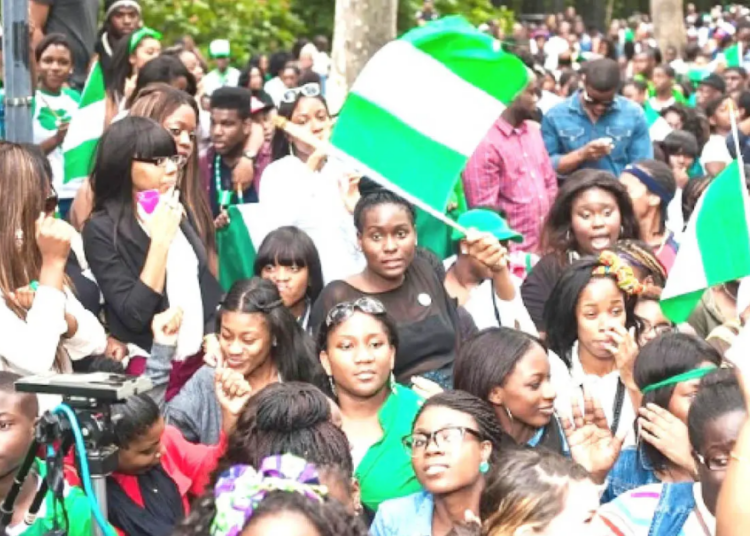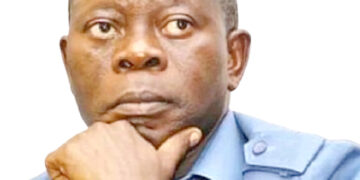During the recently concluded General Elections, 26-year-old Rukuyat Motunrayo Shittu won the Owode/Onire state constituency in Asa Local Government Area of Kwara state.
A similar feat was achieved in Ogun State when 26-year-old Rasheed Kashamu, son of late Senator Kashamu polled 10,004 votes to win the House of Assembly seat in Ijebu North Constituency 1.
In Nasarawa State also, another 26-year-old Muhammad Adamu Oyanki won the State’s House of Assembly seat for Doma North Constituency on the platform of the PDP.
Most notable is the case in Yobe state where the incumbent Speaker, Ahmed Mirwa Lawan who had been representing Nguru 2 state constituency since return to civil rule in 1999 (that is, for 20 years now) lost to 33-year-old Lawan Musa Majakura.
These young Nigerians winning elective positions are undoubtedly a boost for Nigeria’s not-too-young-to-run bill initiative to encourage the participation of young Nigerians in politics. Recall that in May 2018, President Muhammadu Buhari signed the not-too-young-to-run bill into law, a constitutional amendment pushed by young Nigerians which led to a reduction in the age requirement of running for elective positions in the House of Assembly and House of Representatives from 30 to 25 years, Senate and Governorship from 35 to 30 years and office of the President from 40 to 30 years and independent candidates in Nigeria.
Before the commencement of the elections, youths across the country intensified efforts to be part of the political system by contesting for elective positions. There was an increased youth participation in the discourse and campaigns. Socio-economic problems, including incessant university strikes and high youth unemployment, apparently contributed to their engagement. Figures from the Independent National Electoral Commission (INEC) showed that young people made up around 76% of newly registered voters, with 40% of that number identifying as students.
Throughout the elections also, both online and offline, youths across the country were seen and made their voices heard. Available statistics reveals that almost 40% of Nigerians are between 15 and 39, and with the 2023 elections, there is no doubt that their awareness and recognition of the democratic power they hold has undoubtedly increased. The growing digital economy is contributing to the gradual shift of economic power to young people, which can eventually translate to political power.
Undoubtedly, young Nigerians are playing a significant part in the country’ political process and the maturing of Nigeria’s democracy. However, more work needs to be done. The already high levels of self-education on electoral and constitutional processes among youths must be increased. Structural issues such as costly nomination forms and flawed primary elections that make it difficult for young people to compete in polls must also be addressed. Despite the not too young to run bill, youth candidacy in the 2023 elections still declined to 28.8% from 2019’s 34%.
Sustaining the increased engagement of young people during the recent electoral cycle can lead to long-lasting change if demands for accountability are met. Regardless of election petition outcomes, political education on the tools available for holding leaders to account will facilitate their use by young people. The need to enhance the political participation of youths especially in the formal spaces cannot be overemphasized. Youths need to become more involved in political parties, parliament, political appointments, elections and civic spaces as a matter of right rather than of benevolence as it is sometimes suggested and as part of the solution rather than a problem to be resolved by others. Money politics is a major factor in Nigeria when it comes to elections. Political parties need to find ways to reduce these obstacles for young people. Avenues need to be open up for young people to also participate and have a voice in political decision making that would help the country and also interest the young people to join politics.
A major setback during the elections also was of the over 1000 elected legislators in the nation’s state houses of assembly, only 48 are females, representing less than five percent of the total. Altogether, in the next legislative dispensation which starts in June, as many as 15 states shall not have a woman in their Houses of Assembly. From 1999 till date, only 157 women have been elected into the 469-member National Assembly (38 senators and 119 members of the House of Representatives), compared to 2,657 men (616 senators, 2,041 reps) during the same period.
During the National Assembly elections, a total of 18 political parties fielded 380 female candidates; 92 for the Senate and 288 for the House of Representatives. Out of the 92 who contested for the 109 senatorial seats, only three won – one from the APC, LP and PDP. In the House of Representatives, only 15 of the 288 women who contested for House of Representatives’ seats also won, with eight from the APC; four from PDP, and one each from LP, APGA and YPP.
Across Africa, Nigeria ranks the lowest, in terms of female representation compared to the likes of Rwanda, Senegal, Mozambique, South Africa and Burundi. Globally, according to the 2022 Gender Gap Report by the World Economic Forum, Nigeria ranks very poorly, 141 out of 146 countries rated in terms of female political participation. Before the 2023 electoral process, there was more female participation, as more women than men completed registration for their Permanent Voter Cards (PVCs). According to INEC, of the 12.29 million people who completed the PVC registration, 6.22 million are women, which is 50.6%.
The decline in women elected into government can be traced to the low levels of female candidacy recorded during the process. Available figures shows that only 1,550 out of 15,307 candidates in the 2023 general elections are women. There was only one female presidential candidate and no female Vice-Presidential candidate across the 18 parties that contested the presidential elections. This has caused a lot of anxiety among women groups, as the fight for gender inclusion in government seems not to be yielding the desired result.
Women in government needs to be involved in grooming younger women venturing into politics on how best to make an impact and be successful. Similarly, the equitable participation of women in politics is essential for strong democracies and for sustainable development. In addition, ambitious, well-designed and enforceable measures, such as gender electoral quotas, needs to be adopted in order to enhance women’s future representation in the National Assembly. Political parties need to enhance inclusion of women by taking steps to increase the number of women on their lists, in their membership and in key positions in their leadership structures.
So much can be done and needs to be done to enhance the participation of women and youth in our political process and in governance. One can, however, be hopeful that with a brand new shiny administration coming into Nigeria in the next month, women and youth will be given the much needed support to break that glass ceiling in a way that Nigerian women and youth can continue to soar higher and higher.





